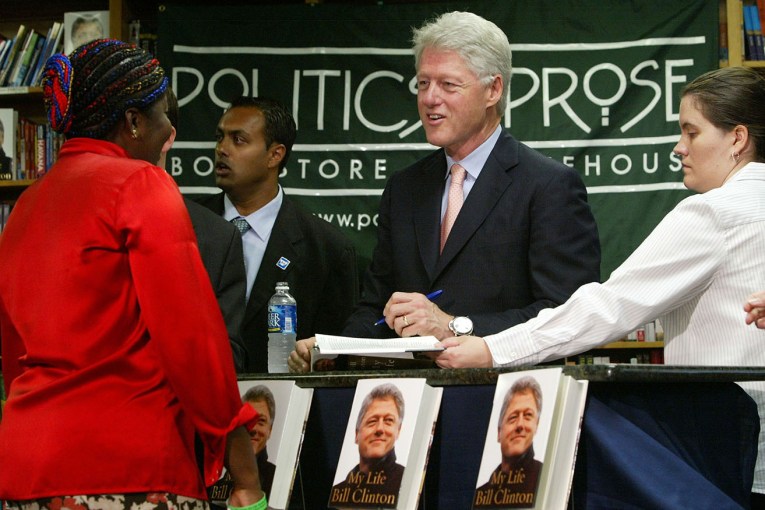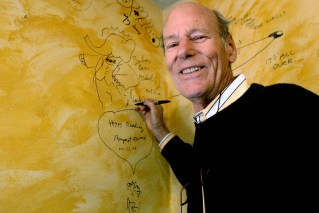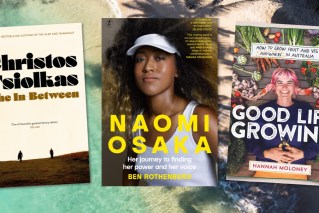Bestseller: the bookstore’s not dead yet


They said the bookstore and the physical books inside it were dead.
In 2011, retail giants Borders and Angus & Robertson were placed into administration, and it seemed as though everyone had abandoned their hardcover novels for Kindles.
Fast forward to 2015, and book sales in Australia, the UK and the United States are growing year-on-year.
• Melbourne bookstore on ‘world’s coolest’ list
• The top 15 books to keep an eye out for in 2015
UK bookstore chain Foyles told the Financial Times in January their sales over Christmas were up 11 per cent from the year before, while fellow UK chain Waterstones said they were planning to open a dozen more stores.
Book sales in Australia are on the way up as well after several years of fairly significant drops following the 2008 global financial crisis (GFC).
National book sales increased by 2.2 per cent in 2014, while some areas of the market, like children’s books, grew by a whopping 30 per cent.
Dymocks achieved a growth of eight per cent in 2014, which managing director Steve Cox said was thanks to Australians’ “continued love of reading”.

Bookstore sales have been on the way up for several years after a decade of heavy loses and store closures.
Readings book stores’ head of communication and marketing Emily Harms also said they had “definitely” seen an upturn in sales in the last few years.
“Our best gains were when Borders closed a couple of years ago, and we’re climbing back up to that year again,” Ms Harms said.
So why have Australians and the rest of the world begun embracing the humble paperback again?
Australian Booksellers Association CEO Joel Becker said it was a combination of the e-book market maturing, as well as book stores working hard to reclaim their space in the community.
“The novelty of the e-book has worn off. I liken it to how many bread makers are sitting in people’s cupboards right now,” Mr Becker said.
“People get excited about new technology. There are early adaptors, then it finds its place.”
Books+Publishing magazine news editor Brad Jefferies said the book industry was steady, with print sales up in 2014.
“It follows repeated years of fairly significant drops in sales in the years after the GFC,” Mr Jefferies said.
“Those years coincided with the uptake of the Kindle and ebooks, and now that the dust has settled, it looks like ebook sales have stabilised … ”
Online sales have also seen massive growth, with book selling giant Booktopia’s chief executive Tony Nash telling The New Daily the company had seen a 40 per cent growth in sales each year for the past eight years.

Kindle and e-book sales have dropped-off overseas, something that will be seen in Australia.
“So online stores also fill a need that suits the Australian book buying community, quite often when there is no local store any more Booktopia fills the void,” Mr Nash said.
Despite Booktopia’s success online, Mr Nash said there would always be a place for a traditional book store.
“Booktopia is on track to be a $100 million online store out of a $1.8 billion Australian book market so there is plenty pieces of the pie to share around,” he said.
“The idea of having a knowledge expert that you can rely on to go to and ask about what to read and save you time and money is extremely valuable.”
Mr Becker said bookstores had worked hard in recent times to market themselves differently after taking their customers for granted.
“Bookshops, whether on a high street, in the CBD, or in a shopping centre, are often focal points for the community, and maybe that was taken a bit too much for granted,” he said.
“Bookshops are now emphasising the place they have in the community as social centres and cultural centres, as well as businesses.”
Ms Harms said Readings also continued to have a base of “loyal customers and buyers”, and said sales were “strong and good”.

Australians have a continued love of reading, Dymocks chief Steve Cox said. Photo: Shutterstock
According to Roy Morgan, e-book sales in Australia have continued to grow over the past two years across every age group, but in places like the UK and the US, they are down significantly.
Mr Becker said this was a trend that would flow through to the Australian market.
“E-book sales were approximately 30 per cent of the US market at the end of 2013, but that’s closer to 20 per cent now, so that’s a significant drop,” he said.
Ms Harms said Readings no longer sold e-books after trialling them, adding: “they never really did anything for us”.
Mr Jefferies said bookstores now seemed “less concerned” with e-books as threat.
“Overall the industry seems healthy and the mood is good,” he said.








